Publications
Articles, publications, books, tools and multimedia features from the U.S. Institute of Peace provide the latest news, analysis, research findings, practitioner guides and reports, all related to the conflict zones and issues that are at the center of the Institute’s work to prevent and reduce violent conflict.
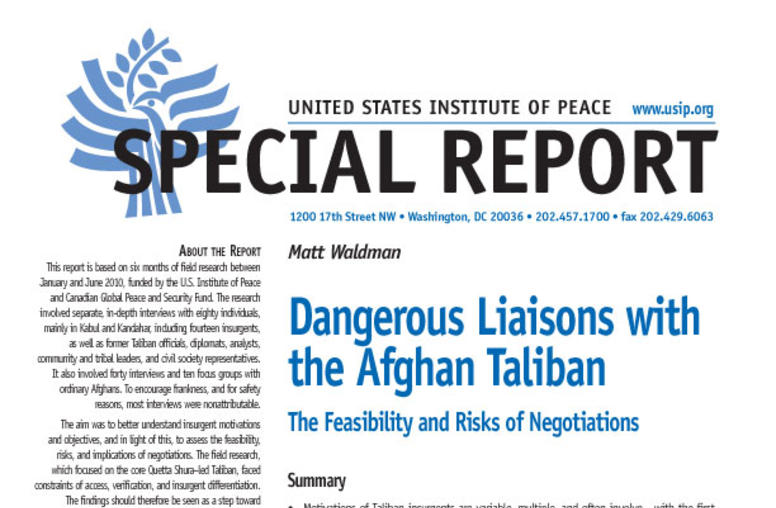
Dangerous Liaisons with the Afghan Taliban
This report is based on six months of field research between January and June 2010, funded by the U.S. Institute of Peace and Canadian Global Peace and Security Fund. The aim was to better understand insurgent motivations and objectives, and in light of this, to assess the feasibility, risks, and implications of negotiations.
The Iran Primer: Power, Politics, and U.S. Policy
Who are the authors? This is an unusual book—written by 50 seasoned experts on Iran as well as a handful of rising young talent. Although this volume has no political agenda and no single political perspective, the authors approach the subject of Iran with a wide range of views. The goal was to be inclusive of many think tanks and universities around the world. The book also features as many Iranian voices as Western authors to ensure the book is sensitive to both sides of the issues.
Palestinian, Israeli Youth Leaders Brief USIP Staff on Peacebuilding Efforts
As part of USIP’s work with youth in conflict resolution and peacebuilding, and its efforts to resolve the Israeli-Palestinian conflict, USIP staff recently met with OneVoice Palestine and Israel youth leaders to learn more about their work on the ground.
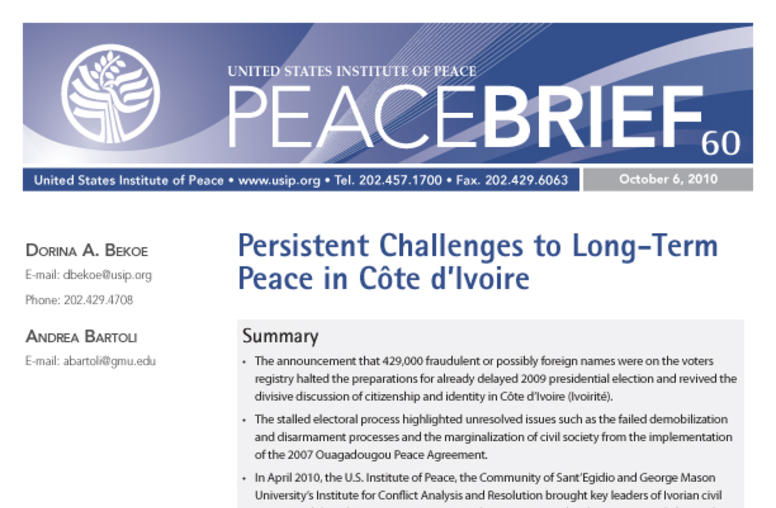
Persistent Challenges to Long-Term Peace in Côte d’Ivoire
This Peace Brief reviews the factors that continue to divide Ivorian communities and stall the peace process in Côte d’Ivoire and provides reflections of a meeting of Ivorian civil society and religious leaders in Washington, D.C.
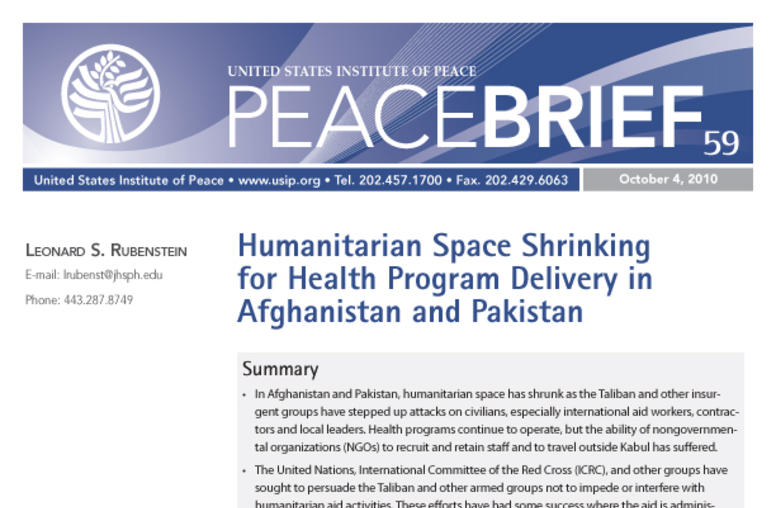
Humanitarian Space Shrinking for Health Program Delivery in Afghanistan and Pakistan
This Peace Brief uses the work of one NGO, the International Medical Corps, as a case study to understand the factors that are contributing to the diminution of humanitarian space and actions that could possibly expand it.
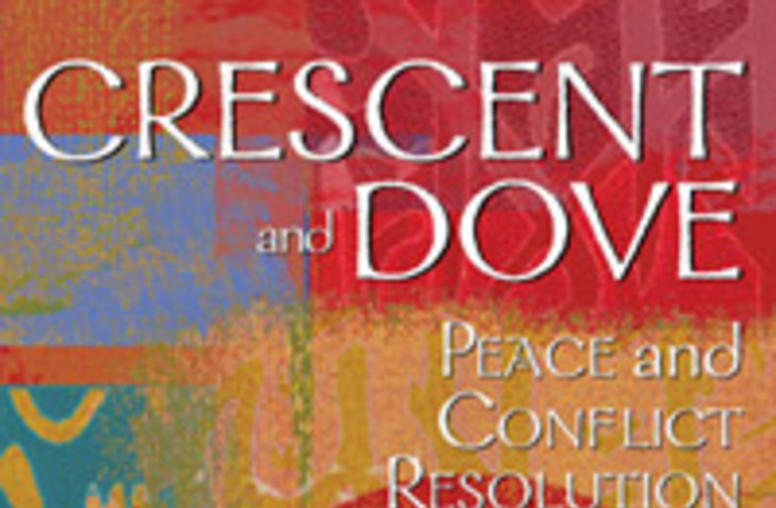
Crescent and Dove
Crescent and Dove looks at the relationship between contemporary Islam and peacemaking by tackling the diverse interpretations, concepts, and problems in the field of Islamic peacemaking. It addresses both theory and practice by delving into the intellectual heritage of Islam to discuss historical examples of addressing conflict in Islam and exploring the practical challenges of contemporary peacemaking in Arab countries, Turkey, Iran, Pakistan, and Indonesia.
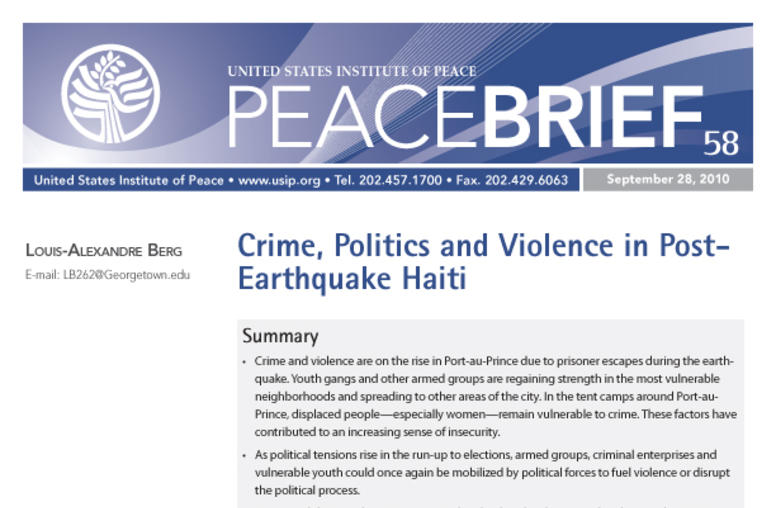
Crime, Politics and Violence in Post- Earthquake Haiti
This Peace Brief was prepared by Louis-Alexandre Berg, a Jennings-Randolph Peace scholar at the U.S. Institute of Peace (USIP) and a rule of law adviser at the U.S. Agency for International Development (USAID). It is based on research conducted by the author in Haiti in July 2010, aimed at assessing vulnerabilities to conflict and instability in the post-earthquake period.
On the Issues: Bosnian Elections
Ahead of Bosnia and Herzegovina’s elections on October 3, USIP’s Daniel Serwer discusses their significance and the challenges facing the country and region.
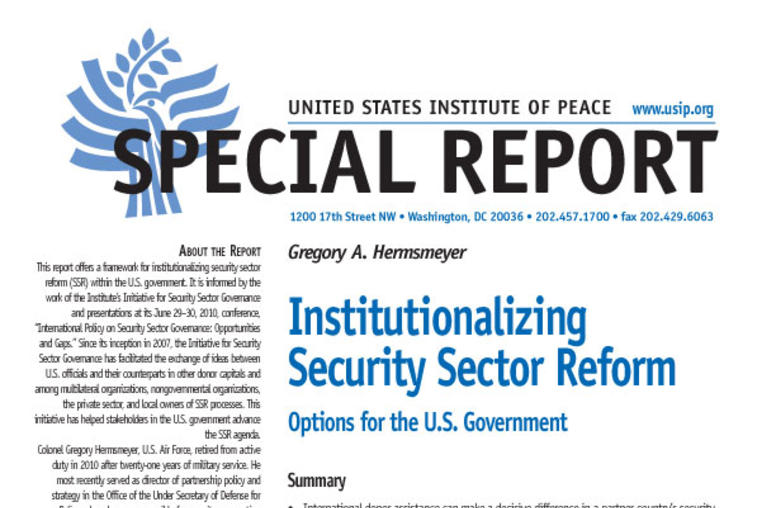
Institutionalizing Security Sector Reform
This report offers a framework for institutionalizing security sector reform (SSR) within the U.S. government. It is informed by the work of the Institute’s Initiative for Security Sector Governance and presentations at its June 29–30, 2010, conference, “International Policy on Security Sector Governance: Opportunities and Gaps.”
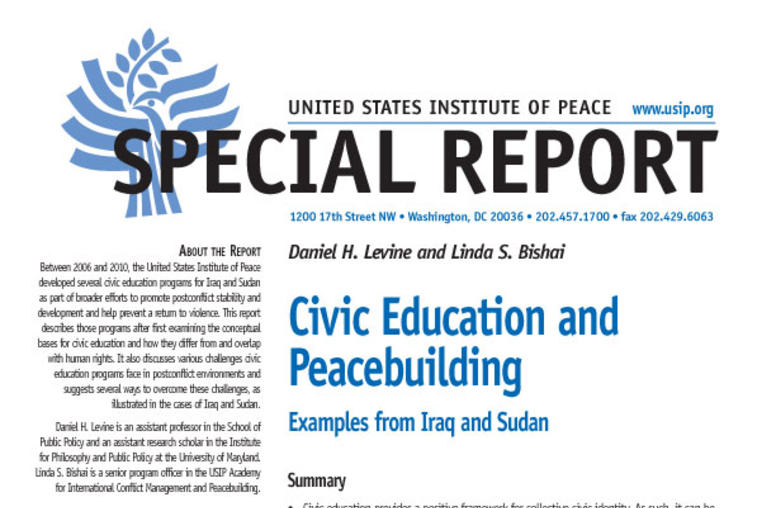
Civic Education and Peacebuilding
Between 2006 and 2010, the United States Institute of Peace developed several civic education programs for Iraq and Sudan as part of broader efforts to promote postconflict stability and development and help prevent a return to violence. This report describes those programs after first examining the conceptual bases for civic education and how they differ from and overlap with human rights.